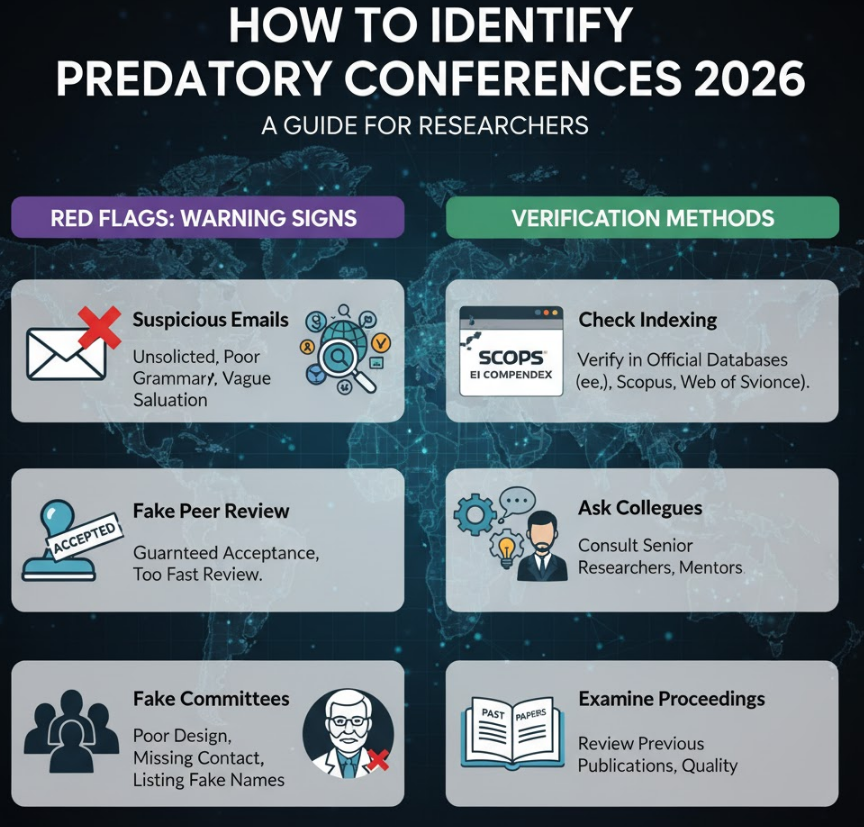Be extremely cautious if you notice several of the following warning signs:

Aggressive & Unsolicited: You receive numerous emails inviting you to speak or present, often about topics outside your expertise.
Overly Flattering Language: Emails might praise your past work excessively but vaguely.
Poor Grammar & Spelling: Emails and the conference website are riddled with errors.
Generic Salutations: Emails starting with "Dear Esteemed Researcher" instead of your name.
The conference claims to cover a vast range of unrelated topics (e.g., "International Conference on Science, Engineering, Medicine, and Humanities").
Vague or Missing Information: The website offers little detail about the peer-review process, the names of reviewers, or the review criteria.
Guaranteed Acceptance or Extremely Fast Review: Promises of acceptance within days or a week are a major red flag. Rigorous peer review takes time (usually several weeks to months).
Unprofessional Appearance: The website looks poorly designed, uses stock photos inappropriately, or has broken links.
Missing Contact Details: No clear physical address for the organizers, only a generic email address (e.g., Gmail, Yahoo) or a web contact form.
Venue Changes: Frequent changes to the conference location or dates, or the venue is vague (e.g., "London, UK" without a specific hotel or university).
The organizing committee members are unknown in the field, or their affiliations are unclear or questionable.
Sponsorship logos from reputable organizations (like IEEE, ACM, Springer) might be used without permission. Always verify such claims directly on the sponsor's website.
Registration fees seem excessively high, especially compared to the apparent quality of the event or if there's no clear indication of reputable proceedings publication (e.g., indexing in Scopus, EI Compendex, or publication by a known academic press).
Listing well-known researchers on the committee without their permission. If you see prominent names, check their personal websites or CVs to see if they list involvement with the conference.
Guarantees that your conference paper will be published in a specific high-impact, indexed journal are almost always a scam. Conference papers are typically published in proceedings, not directly in journals.
Before committing time or money:
Check Reputable Indexing: Does the conference actually have its past proceedings indexed in major databases like Scopus, Web of Science, or EI Compendex? Verify this directly within those databases, don't just trust the conference website.
Consult Blacklists/Whitelists (Use with Caution): While resources like the original Beall's list are defunct, some universities or libraries maintain lists of questionable conferences. However, these lists are rarely exhaustive.
Ask Senior Colleagues or Mentors: This is often the best method. Experienced researchers in your field usually know the reputable conferences. If they haven't heard of it, be wary.